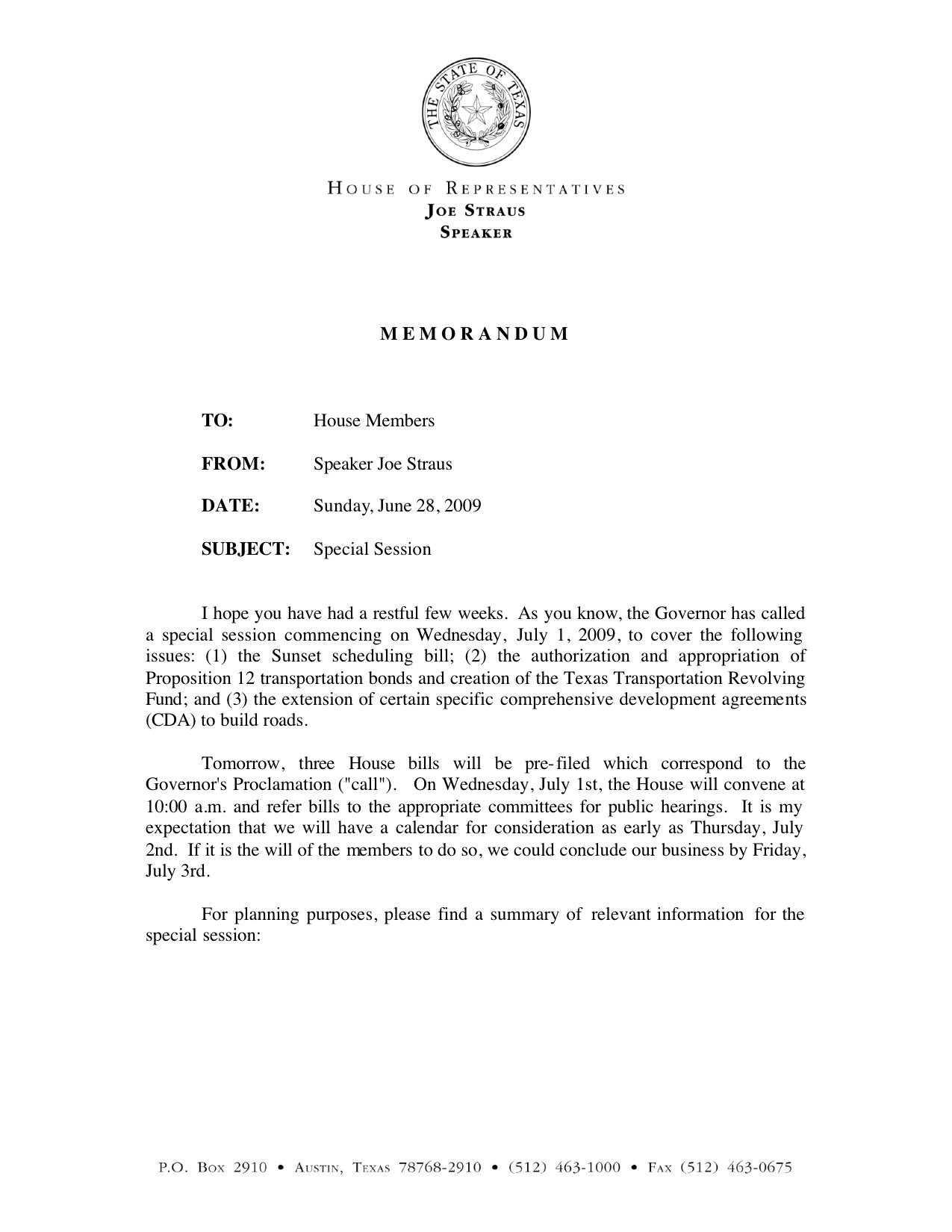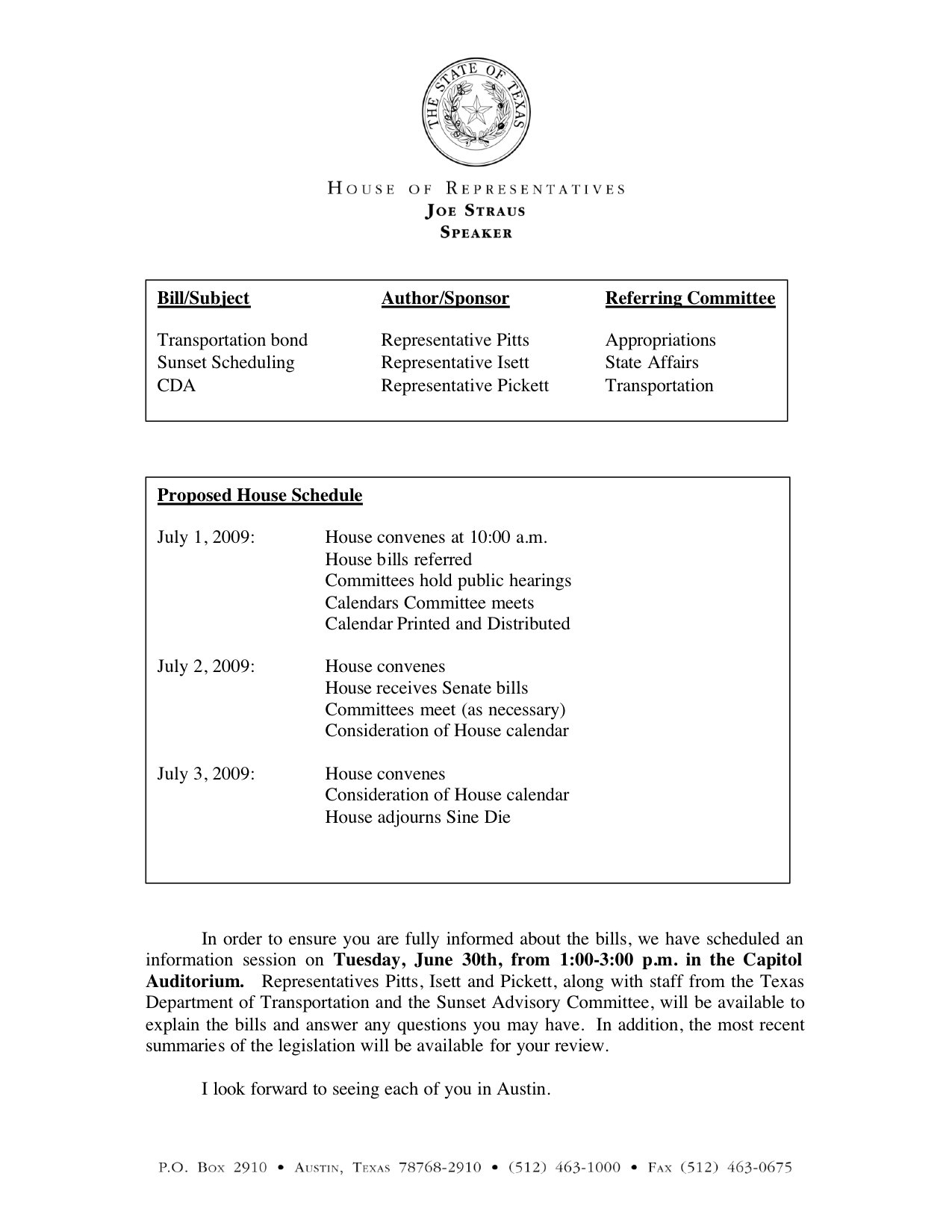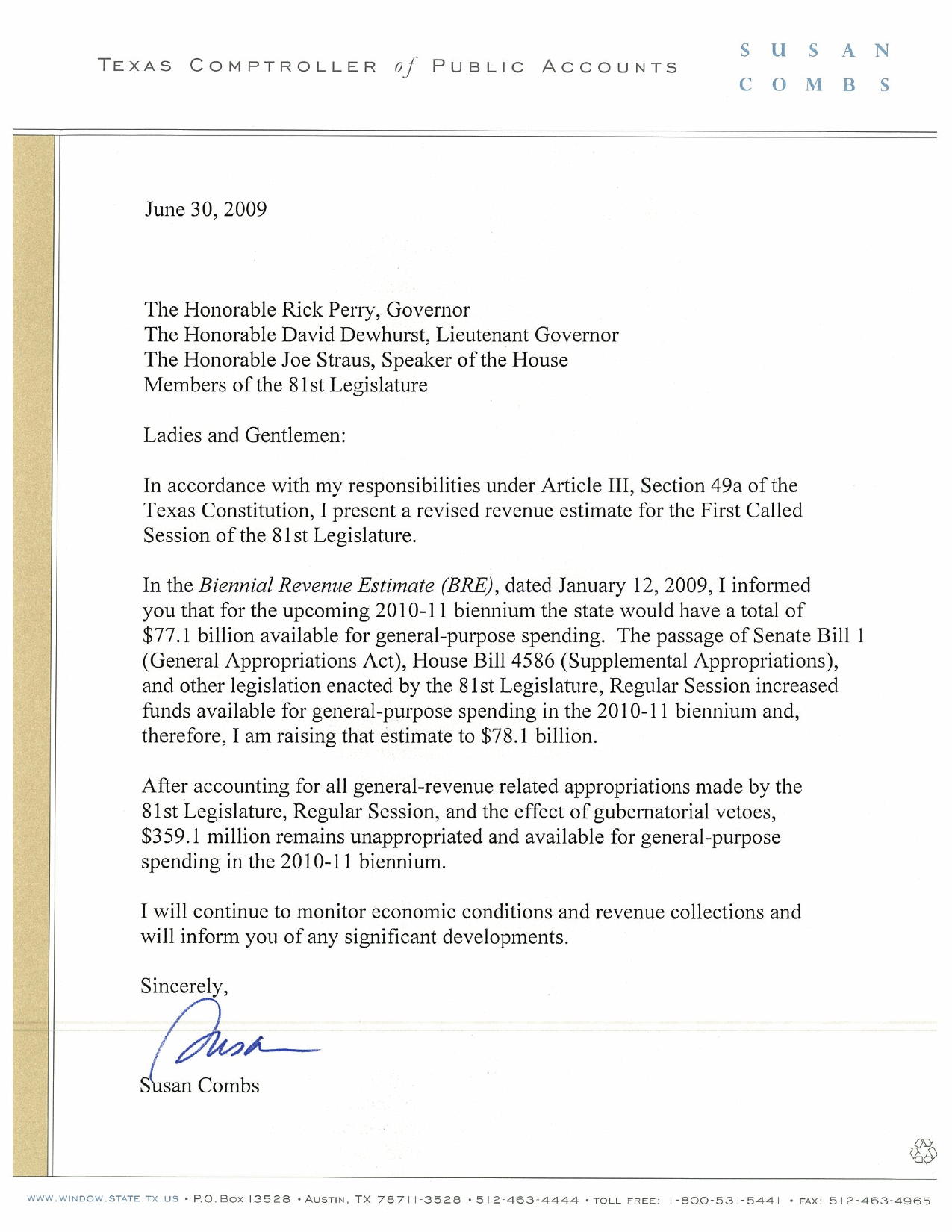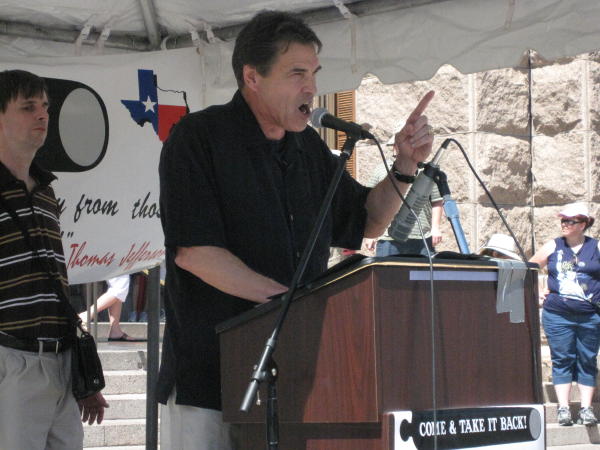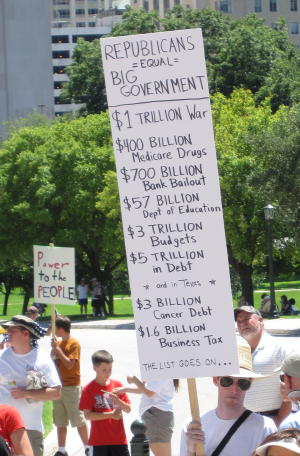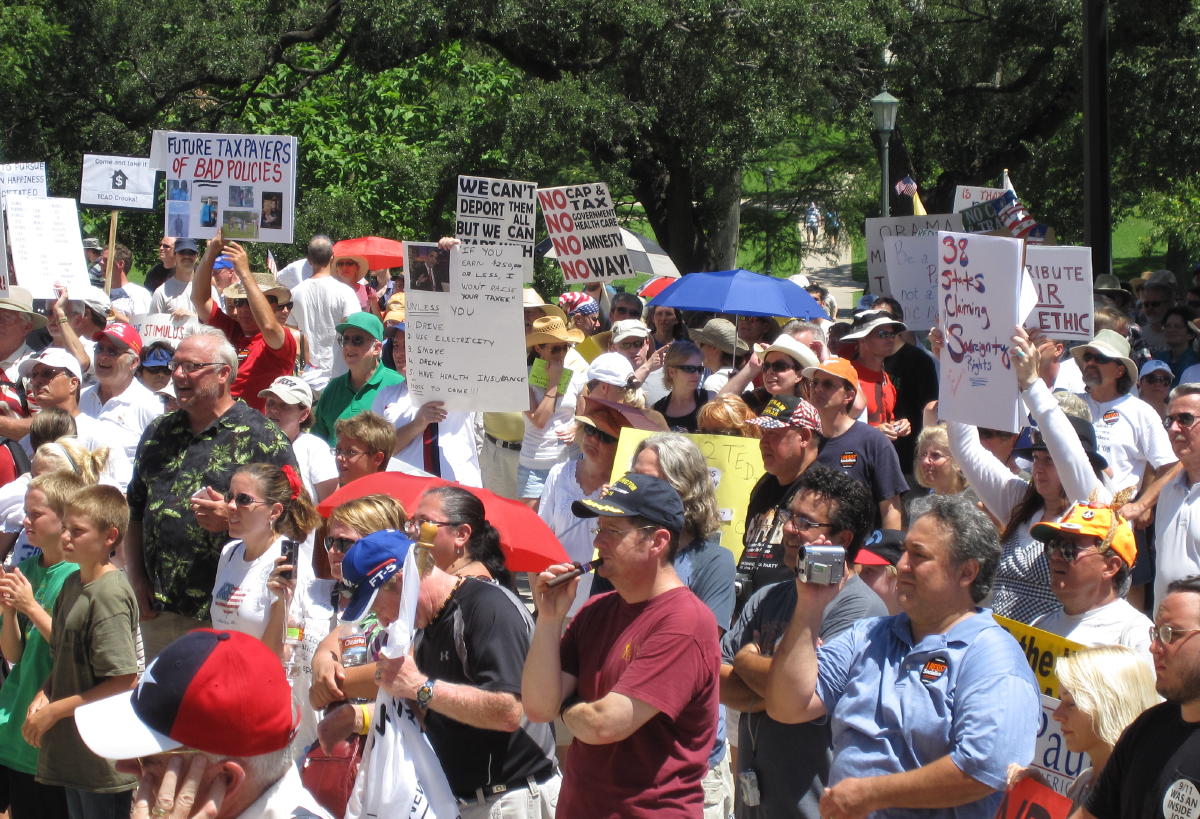This week in the blogosphere, there's Undecided for Governor, and there's everyone else, after a survey showed incumbent Rick Perry up a dozen points on the rest of the field with the biggest bloc of voters uncommitted. Bloggers are also discussing other parts of the Texas Lyceum poll and the special session that starts Wednesday. (We wrote about the poll results here and here.) Capping it off are posts on political campaigns and other things.
* * * * *
Hair and Shoulders Above
BurkaBlog says Lyceum respondents' positions against bailouts and federal spending should bode well for Perry, but he has a different reaction to the Republican gubernatorial primary numbers, saying, "Forget the 12-point lead. The number that jumps out is 33%. That's all?"
"If your sole issue is on the pro-life agenda, Perry is your man. He is quite good at stirring up the base with social issues," says Pondering Penguin, who's written favorably about Perry's chief rival U.S. Sen. Kay Bailey Hutchison. Meanwhile, momentarily diverting her attention from South Carolina Gov. Mark Sanford and his Argentinean amante, In the Pink gives her take on the Lyceum poll, saying, "Basically, here's what the numbers mean — Texas voters hate both of them. There."
Texans for Rick Perry claims their guy's got "momentum" and links to interviews with Perry on TV and radio. And North Texas Conservative wins Headline of the Week Award by summing up Perry's campaign message in 12 words: "You Don't Toss The CEO If The Company Has Been Going Strong."
The Austin Chronicle's newsdesk looks at an early Perry veto that slipped under the mainstream media's radar. SB 2038 by Sen. Robert Duncan, R-Lubbock, would have directed judges to treat non-substantive code revisions as such (that is, not substantive). Several people, including possible gubernatorial aspirant Sen. Kirk Watson, D-Austin, are complaining that Perry vetoed bills that staffers said their boss would sign. Off the Kuff wants to know if those kind of assertions are unusual. And Texas Observer Blog reports that, before becoming Perry's new chief of staff, Ray Sullivan was cashing checks for lobbying on behalf of electricity deregulation, red-light cameras and a toll-road builder.
* * * * *
Pack Animals
Texas "Off the Record," who was a public relations consultant for former Gov. John Connally, notes that Democrat Tom Schieffer's 6 percent mark in the Lyceum poll is better than Connally's initial survey showing of 4 percent. The Fort Worth Star-Telegram's PoliTex views the former U.S. ambassador's hometown campaign kickoff through burnt-orange-colored lenses. And the Houston Chronicle's Texas Politics posts audio of a 45-minute interview with Schieffer.
After hearing what Schieffer had to say, Burnt Orange Report "wasn't offended... but... wasn't particularly inspired." Meanwhile, mean rachel canvasses bloggers' reactions on what she calls a "weak" Democratic field for governor. And Burka lays out Watson's (and by extension any Democrat's) chances of winning the governorship in 2010, saying that Perry is vulnerable in the suburbs on the subjects of schools, roads, home insurance and his own tenure.
Wharton Republican Debra Medina ran away with an Internet poll by Lone Star Times on the GOP gubernatorial primary, prompting the blogger to remark that Medina's sway over supporters of U.S. Rep. Ron Paul could be enough to garner 10 to 12 percent of primary votes, and make things a little more interesting in the process.
* * * * *
Takeaways
Seeing that 71 percent of respondents favor voter ID, pollabear thinks Democrats need to concede the issue to Republicans. "If Democrats continue to take the bait they will continue to lose," the blogger says. And Eye on Williamson says the Lyceum poll shows that "Texas is in flux."
Kuff says former Texas Comptroller John Sharp's 2 percent performance in the U.S. Senate section of the poll nixes his name recognition argument. Elsewhere, fellow Democratic U.S. Senate contender and Houston Mayor Bill White is attracting the wrong kind of publicity from Texas Watchdog, who posts a series of articles on what White knew about a Houston airport controversy, and when he knew what he did. (Find more here.)
* * * * *
Special Interest
A Capitol Blog's Rep. Aaron Peña, D-Edinburg, creates a 90-second video preview of the special session, which he thinks might last "four or five days." He also says he hopes to be back home by the Fourth of July. A few days before Perry called the special session, Peña announced that he's having a fundraiser July 8 at the Austin Club, so he'll save some gas money if he sticks around the Capitol. On a related note, the El Paso Times' Vaqueros & Wonkeros takes a snapshot of the hometown incumbents' fundraising, noting that Sen. Eliot Shapleigh, D-El Paso, has an event planned for July 4 Out West.
Newsdesk thinks Perry's inclusion of public-private toll roads and a revolving fund on the special agenda muddies the waters a bit. And the Austin American-Statesman's Postcards dusts off their desk calendars to look at special sessions since the late 1800s.
* * * * *
Race to the Finish
Attorney General Greg Abbott may or may not run for lieutenant governor, his new political director says, according to Texas Politics. Meanwhile, Burnt Orange is sounding out for readers' input on what candidates their TexBlog PAC should help in 2010. And Postcards says a couple of Austinites think they'll need at least $1 million to knock incumbent U.S. Rep. Lamar Smith, R-San Antonio, from his perch.
Texas Freedom Network Insider says their parent organization is training State Board of Education candidates July 22 in Austin (so camp outside St. Edward's University that afternoon to catch a glimpse of the hopefuls.)
Tex Parte Blog has reactions to a recent U.S. Supreme Court decision concerning an Austin municipal utility district and the Voting Rights Act from the Mexican American Legal Defense and Education Fund and the MUD's lawyer.
Texas did pretty well on a state-by-state comparison of legislators' financial disclosure requirements, the Washington Examiner's Beltway Confidential reports. (The winner: Louisiana.) Grits for Breakfast talks about the long-delayed Texas Youth Commission trial in West Texas. And the Houston Chronicle's Texas on the Potomac talked energy policy with Obama, then created a big ol' special report about it.
This edition of Out There was compiled and written by Patrick Brendel, who hails from Victoria but is semi-settled in Austin. We cherry-pick the state's political blogs each week, looking for news, info, gossip, and new jokes. The opinions here belong (mostly) to the bloggers, and we're including their links so you can hunt them down if you wish. Our blogroll — the list of Texas blogs we watch — is on our links page, and if you know of a Texas political blog that ought to be on it, just shoot us a note. Please send comments, suggestions, gripes or retorts to Texas Weekly editor Ross Ramsey.


